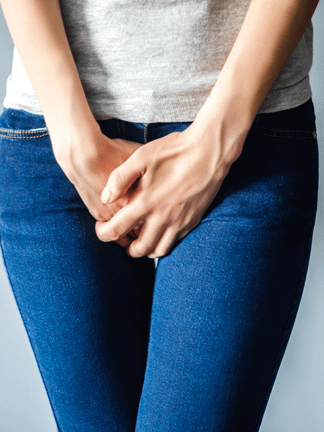Itchiness anywhere on your body can be irritating and painful, but in an area as sensitive as the vagina, the itchiness may feel much worse and can be extremely uncomfortable. If you’re experiencing vaginal itching, it could be down to a simple skin irritation or a sign of an underlying problem, such as thrush, bacterial vaginosis (BV) or a sexually transmitted disease.
In this article, we talk you through the many causes of vaginal itching and how to treat it. If the itching persists, you should see your GP as soon as possible for advice.
Why is my vagina itchy?
There are numerous reasons you may be experiencing vaginal itching and it can be difficult to know when or why it started. Below, we’ve listed the main causes of excessive itching down there.
What causes vaginal itching?
Yeast infection
A yeast infection, such as thrush, can cause severe itching and irritation in both men and women. Other symptoms include a thick, white vaginal discharge and a stinging sensation during intercourse or when you wee. Thrush can usually be treated easily and quickly. We explain how thrush can be treated further down.
Menopause
During the menopause, which typically occurs between the ages of 45 and 55, a woman’s oestrogen levels drop. It is this hormonal decrease that can cause the vaginal walls to become thin and dry. This leads to irritation and excessive itchiness. Not all women will experience itchiness as a result of the menopause, however, many do. Fortunately, there are creams that you can purchase to reduce the symptoms.
Chemicals or substances
The most common cause of vaginal itching is irritating chemicals or substances coming into contact with the skin. The intimate area is very sensitive and certain chemicals or products, such as scented toilet paper, condoms, washing powder or some soaps, can cause itching.
You should treat the area gently, washing it with a soap-free feminine wash that’s designed especially for intimate areas. Avoid over washing your intimate area as this can dry it out, causing further itching.
Your underwear can also have an impact on how itchy the area is. We’ll discuss the kind of material you should wear further down.
Sexually transmitted diseases (STDs)
Vaginal itching could be a sign of an STD. Chlamydia, gonorrhea and trichomoniasis can all cause irritation of the vagina or the vulva (outer vaginal lips). You should see your GP as soon as possible if you think you might have an STD.
Is vaginal itching normal?
Vaginal itching is quite common and can often just be a result of skin irritation. Itchiness might go away on its own, however, if it persists, you should book an appointment with your GP.
You should have a think about any products you may have used recently that could be causing the irritation. For example, you may have been wearing tight clothing the day before, such as a pair of skinny jeans or cycling shorts.
